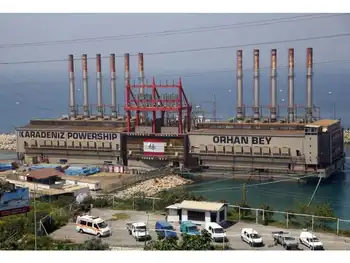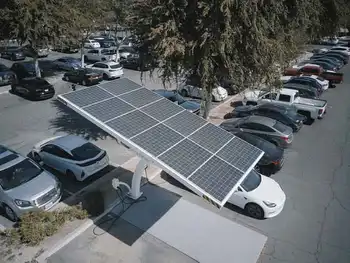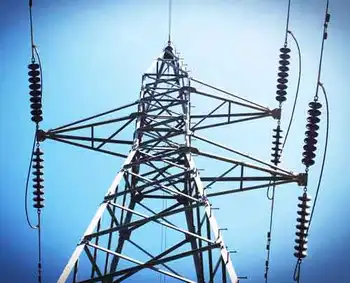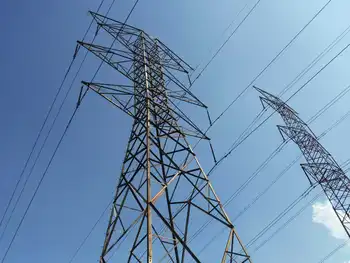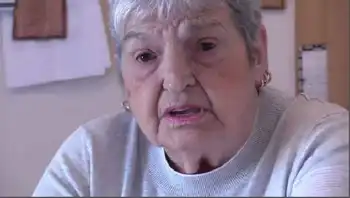Service disconnections up in Milwaukee as unpaid bills increase
By Journal Sentinel
Substation Relay Protection Training
Our customized live online or in‑person group training can be delivered to your staff at your location.

- Live Online
- 12 hours Instructor-led
- Group Training Available
More than 25,000 We Energies customers in Milwaukee County have been disconnected since a winter moratorium ended in April. By the end of the year, that number is expected to grow to 70,000, a 27% increase from 2003, according to the company.
While many have found the money to have their power restored, more than 13,000 remain without electricity. Applications for energy aid have grown, say officials with the state's energy assistance program.
Joanell Brown, a single mother of three who lost her job when the juice shop she managed closed in April, has been without power since June 1.
Her family uses candles and flashlights to find the bathroom at night in their home in the 2400 block of N. 34th St. Without a refrigerator, she buys one meal at a time. She visits friends to iron clothes for job interviews.
"It's miserable because we can't wash. . . . I have to go beg a convenience to iron my clothes," Brown said.
Brown owes $690 and must make a $390 payment before We Energies will restore her power. But there isn't enough left from her unemployment check after she pays $500 in rent, Brown said.
Blame for increased shut-offs
A combination of rising energy costs and a $10 million dip statewide in federal energy assistance for low-income households since last year may be to blame for the increase in shut offs, said Joan Shafer, We Energies vice president of customer service.
Nationally, the average home heating costs for natural gas increased almost 50%, from $600 to $898, from the 2002 to 2004 winter heating seasons, according to the federal Energy Information Administration.
At the same time, Wisconsin received $64.3 million in federal funding from the Low Income Home Energy Assistance Program this year, compared with $69.5 million in 2003. Additionally, a $5 million rollover from 2002's mild winter that padded last year's energy assistance funding was not available this year.
Energy assistance dropped an average of 30% per household receiving benefits, from $439 in 2003 to $304 in 2004, Shafer said. Back debts for residential customers jumped 38% from December to March, according to the utility.
While the company tries to spread payments over a year, many families fail to pay enough to keep their power on, Shafer said.
Of 189,000 pay arrangements set up last year, only 25% were kept, she said.
Bigger power bills mean more debt for families, which makes even minimum payments difficult, said Diane Robinson, energy assistance program manager for the Milwaukee Social Development Commission.
Robinson said many of the families seeking help owe about $5,000. One owes $26,000.
"By the time you buy food, there is nothing left for We Energies," Robinson said.
Ramon Wagner, director of Community Advocates, a non-profit agency that helps people deal with delinquent bills, called the "energy burden" on low-income households the worst he's seen since in 28 years. Lines form outside the agency at 4906 W. Fond du Lac Ave. two hours before it opens, he said.
"This is a crisis," Wagner said, and not just for the poorest. "Some of these families are on W-2 (the state's welfare to work program), but the large majority are working and still really struggling."
Winter bills come due
During the winter, 40,000 customers didn't make any payment, leaving massive balances due in April.
People who lose electrical service sometimes try to get power another way, even if it's hazardous or illegal, Wagner said.
We Energies has cracked down on delinquent customers who reactivate accounts under different names, which has led many to run extension cords from other homes, or to try to turn the power back on themselves, Wagner said.
Lehman Stitt, 75, was killed May 22 in a fire at his home in the 2900 block of N. 2nd St. The fire apparently was electrical in origin, according to police. Stitt, who had no electricity in his second-story apartment, had several appliances plugged into a single extension cord running from the first floor.
Others say energy costs are pushing them toward the welfare system.
Phyllis Agee, of the 2700 block of W. Clarke St., and her five kids had their power turned off in May, leaving them in the dark for several nights with spoiled groceries.
After she failed to make her first payment on a plan set up with We Energies, she once again faced a hefty payment to keep from being disconnected. She used her rent money to pay We Energies and took out a Wisconsin Works loan to cover the rent.
"I don't like (taking W-2 money) at all, but I am a single mom with five kids, and I had to do what I had to do," Agee said. Agee makes $8.10 an hour as a nursing assistant.
Most officials agree that more funding is needed for assistance programs. Wagner suggested that in the absence of increased assistance, We Energies should further reduce payments on arrearages so that such customers would be able to pay something.
But Shafer said We Energies is already doing all it can.
"The expectation remains that at the end of the day the customer is responsible for their energy bill," she said.





